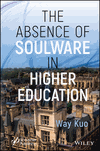Stains in Academic Freedom and Campus Autonomy
Summary
As the seedbed for the quest of truth, knowledge creation and innovation, academic freedom provides the opportunity for professors and students to engage in academic exploration and ensure that external forces will not interfere with their studies, teaching and research. The modern concept of academic freedom comprises three layers. First, academic freedom refers to freedom from political interference in the curriculum and academic affairs under the leadership of an academic institution. Second, it refers to academics' freedom from retaliation related to their choice of research and teaching but excludes blanket protection against views they express under every possible viewpoint. The third refers to the freedom of academic inquiry. Inquiries unrelated to academic matters are not subject to the guarantee of freedom. Issues pertaining to academic ethics have received the attention of higher education. Campus autonomy is the second essential element of the principle of the separation of politics and education.



